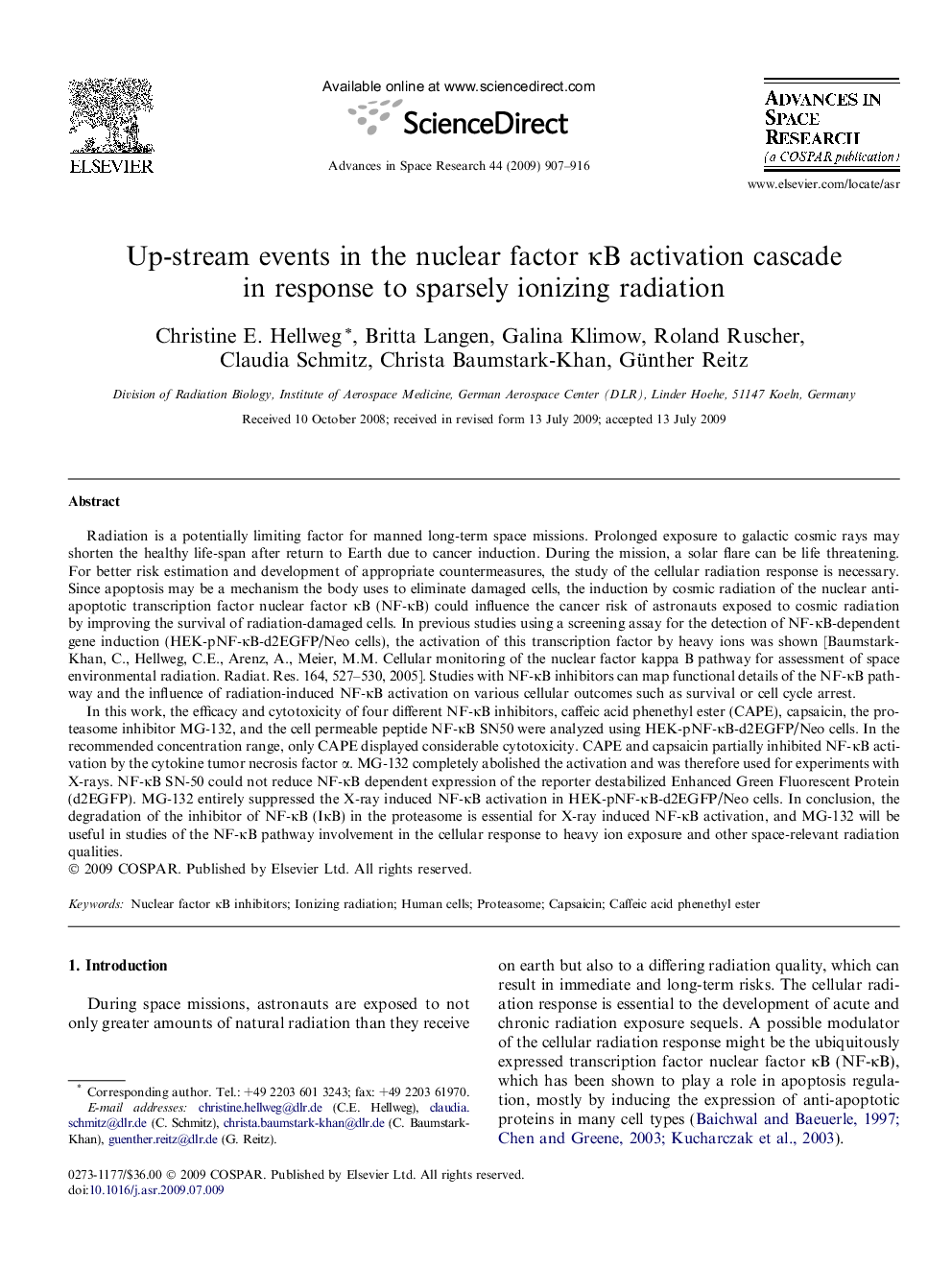| Article ID | Journal | Published Year | Pages | File Type |
|---|---|---|---|---|
| 1767902 | Advances in Space Research | 2009 | 10 Pages |
Abstract
In this work, the efficacy and cytotoxicity of four different NF-κB inhibitors, caffeic acid phenethyl ester (CAPE), capsaicin, the proteasome inhibitor MG-132, and the cell permeable peptide NF-κB SN50 were analyzed using HEK-pNF-κB-d2EGFP/Neo cells. In the recommended concentration range, only CAPE displayed considerable cytotoxicity. CAPE and capsaicin partially inhibited NF-κB activation by the cytokine tumor necrosis factor α. MG-132 completely abolished the activation and was therefore used for experiments with X-rays. NF-κB SN-50 could not reduce NF-κB dependent expression of the reporter destabilized Enhanced Green Fluorescent Protein (d2EGFP). MG-132 entirely suppressed the X-ray induced NF-κB activation in HEK-pNF-κB-d2EGFP/Neo cells. In conclusion, the degradation of the inhibitor of NF-κB (IκB) in the proteasome is essential for X-ray induced NF-κB activation, and MG-132 will be useful in studies of the NF-κB pathway involvement in the cellular response to heavy ion exposure and other space-relevant radiation qualities.
Related Topics
Physical Sciences and Engineering
Earth and Planetary Sciences
Space and Planetary Science
Authors
Christine E. Hellweg, Britta Langen, Galina Klimow, Roland Ruscher, Claudia Schmitz, Christa Baumstark-Khan, Günther Reitz,
